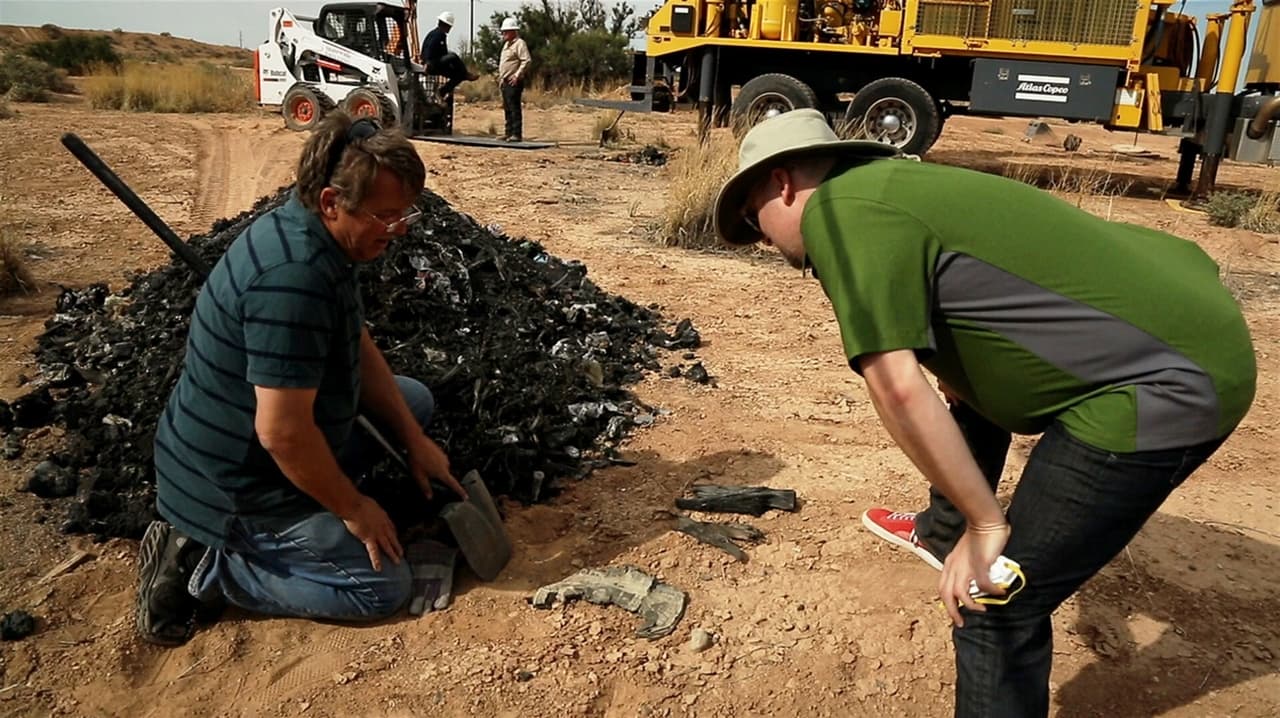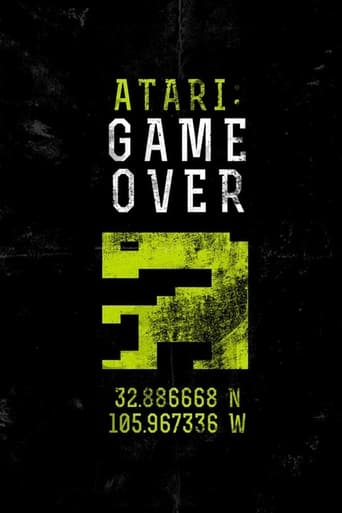

I love this movie so much
... View MoreWhat a waste of my time!!!
... View MoreIt's funny, it's tense, it features two great performances from two actors and the director expertly creates a web of odd tension where you actually don't know what is happening for the majority of the run time.
... View MoreIt's simply great fun, a winsome film and an occasionally over-the-top luxury fantasy that never flags.
... View MoreNerds of a certain age are so precious about the pop-culture artifacts of their youth, it's tempting to see this gathering of hundreds in a dump full of discarded '80s detritus as an apt visual metaphor. The spectators see it in more mythic terms, however; more than one enthusiast compares the dig to Raiders Of The Lost Ark, and a sudden sandstorm evokes the opening of Close Encounters Of The Third Kind. Everyone here speaks fluent Spielberg. (It's fitting that Penn is adapting Cline's Ready Player One, a book heavily steeped in vintage video games, as a screenplay for Spielberg to direct.) Penn keeps inserting himself into the action, playing the role of the buffoonish Hollywood guy who knows nothing about archaeological excavations, and he's usually not as amusing as he's trying to be. When the revelation finally comes, it's underwhelming to say the least. Yes, there are E.T. cartridges buried in Alamogordo, but not millions of them, and there are plenty of more popular games buried there, too.
... View MoreIt's a well known fact: the event which provoked the collapse of the video game industry in the early '80s was the release of E.T. the Extraterrestrial, such a bad game, but with such high sales expectations, that its failure ruined the company Atari while also caving the whole industry. But, how true is that fact? Filmmaker Zak Penn seeks the answer to that and other questions in the documentary Atari: Game Over with the help of fans of the company, the original programmer of that fateful game and even some defenders of E.T. the Extraterrestrial (such as novelist Ernie Cline). And all that happens while Penn tries to clear out the big mystery about the final destiny of the millions of cartridges which were never sold. Were they really buried in some remote place of the desert? The search of that mythical place forms the narrative structure of Atari: Game Over. According to testimonies of witnesses, old documents and the personal investigation of historians such as Mike Mika, it has been determined that the likeliest place of that collective grave of cartridges is a huge municipal dump in the outskirts of Alamogordo, New México. But it won't be that easy: the dump covers many hectares and the modern archaeologists contributing to the search lack of verifiable data regarding the exact site, or even the veracity of the legend; and besides, the local government doesn't think it's a good idea to dig randomly, due to the possibility of finding toxic or radioactive material (Alamogordo had a big prominence in the first nuclear tests made in the United States during the '40s). While Penn solves the legal and logistic problems of excavation, we can learn a lot from the interviews to ex- directors of Atari, former employees of the company and analysts with enough experience to adopt a more sober and less reactionary about the authentic effect of E.T. the Extraterrestrial over the collapse of the video game industry. Many of these points were superficially covered in documentaries such as Video Games: The Movie and and Indie Game: The Movie, but Penn deepens on them like no other, and he could even create an atmosphere of nostalgia and suspense I didn't expect in a tale about something so specific and, at the same time, trivial. But besides of seeking old cartridges or defending the bad decisions of "stoner" programmers, Atari: Game Over is a tribute to "geek" culture on each one of its manifestations. Penn understands the inherent irony in his mission, and accepts the implicit humor in taking such an absurd search seriously... but he never becomes it a joke against "geeks"; on the opposite, this is a genuine tribute to the passion all these ephemeral manifestations of popular culture wake, and even though they didn't change the world, they were (and keep being) important for many people. The reason of those obsessions might need a deeper analysis, but that isn't the purpose of Atari: Game Over; its purpose is entertaining and illustrating us about a famous (maybe apocryphal) chapter in the History of video games, and it fulfills that mission with a lot of style and enthusiasm. Those interested in the general History of video games should check the previously mentioned documentary Video Games: The Movie; but for those who are fans of Atari, Atari: Game Over is the definitive film... at least until someone makes a deep academic dissertation about the "easter eggs" of Pitfall.
... View MoreThis review contains spoilers.As a programmer of nearly half a century, I have more then a passing interest in what is considered the worst game of all time.The Atari 2600 was the only gaming console I ever bought. I loved many of the games, but I have never played E.T.In programming you have choices: good, fast, cheap (pick any 2). If a programme is good and fast, it is NOT cheap.If a programme is cheap, it's not good.As a programmer, I have felt these constraints many times. Have I written crappy programmes? Of course, all programmers do. Sometimes you only have a few hours, before the online system comes up, and so you resort to what is expedient, not what is quality code.I have been in Howard Warshaw's predicament many times. As I viewed this biopic, I know very intently the precarious environment he was in, when he had to produce a product in 5 weeks.In the end is was not Warshaw who derailed Atari, nor the entire video game industry. Atari (Japanese for "to hit the target") went for the jugular and committed hara-kiri with their own sword.The end of the programme vindicates Warshaw.Wayno
... View MoreThis overlong documentary is full of hyperbole as it goes on a search in an Alamagordo trash dump to see if they can discover the final resting place for tons of unwanted "E.T." video games. In addition, the film follows the history of Atari up to 1982 (and oddly, completely abandons this after 1982). In the course of the film you are presented with a few interesting interviews as well as many uninteresting ones--either filled with folks who seem to have no reason to be there or who come off as egotistical jerks."Atari: Game Over" is a film that drives the history teacher in me mad. While the show is interesting to watch for nostalgic reasons (after all, I had an Atari 2600) it's history is poor to say the least. According to so much of "Atari: Game Over" the company was destroyed by the game "E.T." or at least that it died soon after the game died on the shelves--but this is NOT the case at all. The Atari 2600 was soon replaced by the Atari 5200 and Atari 7800 and the company limped on through the 1980s and did NOT fold after the failure of "E.T."--so pretty much everything about the film is wrong when it comes to the real history. Saying the popularity of the Atari games peaked with "E.T." and it was all decline from then on, that WOULD be accurate. But the company dying was not just because of "E.T." but the lousy controllers for the 5200 (they were cheap plastic and overly complicated--and broke VERY quickly) and the system wasn't fixed...it was abandoned. As for the 7800, its titles never generated much excitement--especially since folks were afraid the system would also soon be abandoned. A variety of other financial missteps also hastened the decline, so the whole notion that the company disappeared after "E.T." debuted it a hoax. There must be better films about Atari out there...this one is full of sentiment but short on facts.
... View More